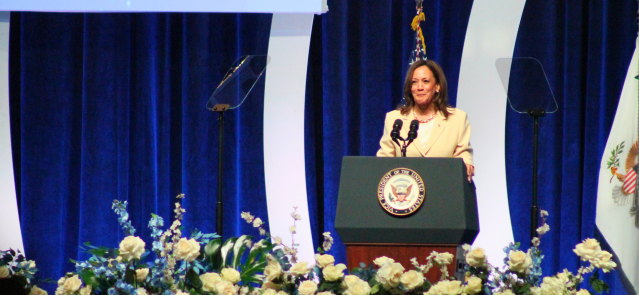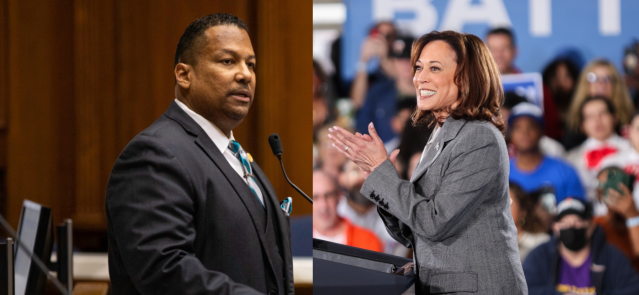Stay ahead of the curve as a political insider with deep policy analysis, daily briefings and policy-shaping tools.
Request a Demo‘It’s about the rich and the richer’: What’s driving a controversial utility bill in Indiana
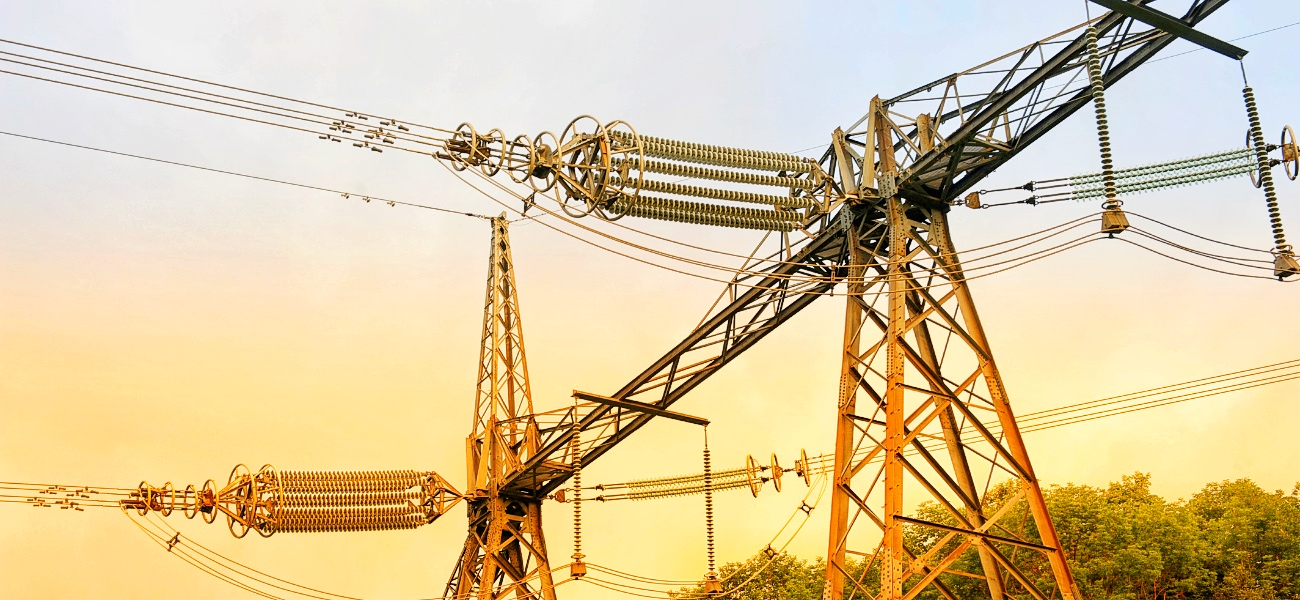
House Bill 1420 would give first dibs to investor-owned utility companies on regional transmission projects. (Credit: Dave Sangster)
One of the final bills to move through the Indiana General Assembly this session was also one of the most controversial.
But House Bill 1420 is about something seemingly mundane: electric transmission lines. Specifically, who owns them? Who maintains them? And, ultimately, how much more will Indiana residents be required to pay for electricity?
As it turns out, potentially billions of dollars in projects are on the line, with Indiana serving as the latest battleground between intense business interests — leading to packed committee rooms, targeted ads on social media and fierce lobbying.
“It’s a three-page bill,” said bill author Rep. Ed Soliday, R-Valparaiso, at a Senate committee last week. “In 17 years, I’ve never seen anything like this.”
On one side of the issue are the investor-owned utility companies that provide electricity in Indiana. They are joined by several labor groups, such as steelworkers and operating engineers.
On the other side are national transmission companies competing for the new business, as well as the conservative political group Americans for Prosperity and the consumer advocacy group Citizens Action Coalition.
What’s behind the bill?
Transmission lines hang on the massive steel towers often seen cutting across the countryside. They ensure electricity moves across borders and empower utility companies to deliver the most affordable electricity to consumers at any given moment.
Now, the federal government is planning to spend trillions of dollars across the country to expand the number of transmission lines. That’s because the current grid is at risk of further congestion, thanks in large part to consumers’ growing demand for electricity and the addition of renewable energy sources.
Yes, power in Indiana is generated by burning coal, but it’s also coming from wind farms in North Dakota, depending on the time of day.
Everyone seems to agree on one point: Without the added transmission lines, utility companies in Indiana won’t be able to continue purchasing the most affordable electricity at any given time of day. The cheapest energy may be generated elsewhere, but a sufficient number of lines won’t exist to bring it to Indiana.
Everyone agrees on another point, too: No matter what happens with the pending Indiana bill, the new transmission lines are coming to our state. The Midcontinent Independent System Operator (MISO) — a nonprofit based in Carmel that oversees transmission in our region of the country — has already announced more than $10 billion in projects for the multistate region that includes Indiana, with another $10 billion to $20 billion expected soon.
The policy at the center of HB 1420 is divisive, leading business interests to reach into their deep pockets in an effort to sway lawmakers, advocates, journalists and just about anyone else whose feet step into the Indiana Statehouse. Similar battles have been unfolding in several other states, too, in some cases leading to litigation.
That national landscape is the backdrop to the legislation in Indiana.
Opponents say electricity bills will jump under bill
HB 1420 would allow investor-owned utilities — think Duke Energy, for example, or AES Indiana — to have first dibs on the ownership and maintenance of the new transmission lines. Whenever MISO announces a new regional project, the utility companies would have the right of first refusal.

Opponents of the legislation are quick to note: Utility companies would be financially motivated to jump at those projects. Because of how utility regulation works, the investor-owned companies pass along their costs (plus some extra to pay for investors’ profits) to your monthly utility bill.
HB 1420, however, would extend their monopoly power even further. The bill would remove the threat of competitors to own and maintain new transmission lines. One example of a competitor is LS Power, a national transmission company that recently completed a 31-mile project connecting southern Indiana and western Kentucky.
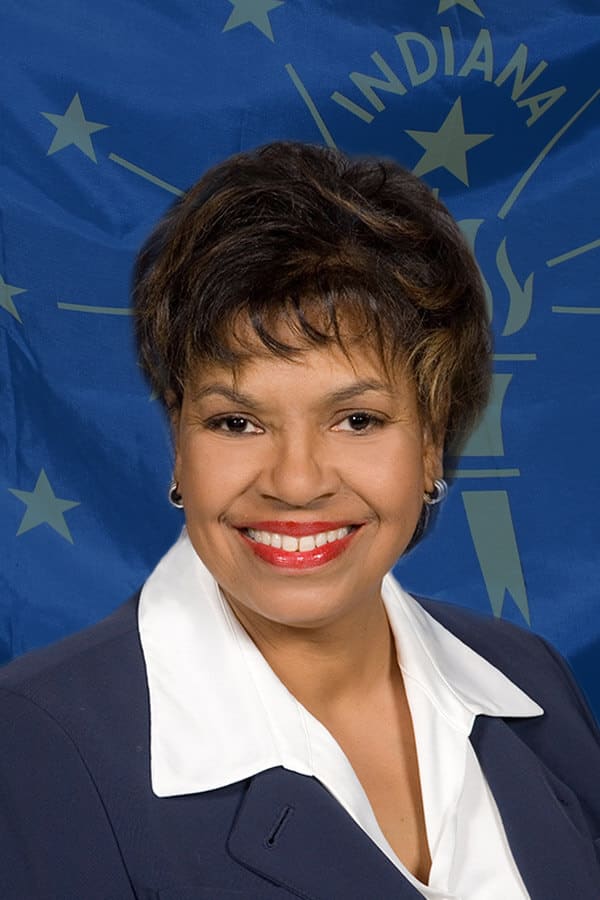
“Incumbent utilities are not only attempting to protect their monopoly,” Kerwin Olson, executive director of the Citizens Action Coalition, told State Affairs. “They’re also trying to squeeze out competitive forces in their service territory, squeeze out cheaper and cleaner forms of energy from third parties and new entrants, and protect their legacy resources which are more expensive — and rate base all this stuff on the back of the consumer.”
Without competition, opponents say, utilities will be incentivized to pursue the most expensive projects because their consumer-funded profits would be higher.
“The larger the project, the more costs that they can recover and the more that they will then transfer those costs down to the ratepayers,” said Sen. Jean Breaux, D-Indianapolis, on the Senate floor this week. “This is simply a way for the utilities to make sure that they grab that piece of the pie for themselves and share it with nobody else.”
Otherwise, national transmission companies would continue to have the opportunity to bid on those potentially billions of dollars of transmission projects.
Who supports HB 1420
Supporters of HB 1420 — including farmers and labor organizations — often cited their longstanding relationships with investor-owned utility companies.
The Indiana Farm Bureau, for example, is concerned whether an influx of transmission lines will lead to clashes over property rights. Companies that build the lines have the right to acquire private property through eminent domain.
A representative for the Indiana Farm Bureau told lawmakers that investor-owned utility companies can be trusted to exercise that right most appropriately.
For labor organizations, the support is a result of available jobs through the investor-owned utilities.
The Indiana State Building and Construction Trades Council, which represents more than 75,000 members across 127 local unions, wrote in a letter to lawmakers: “Indiana utility companies have a long-standing history of using skilled trades workers on their projects. The passing of HB 1420 will ensure Hoosiers will continue to work on these projects, earning a living wage within our state.”
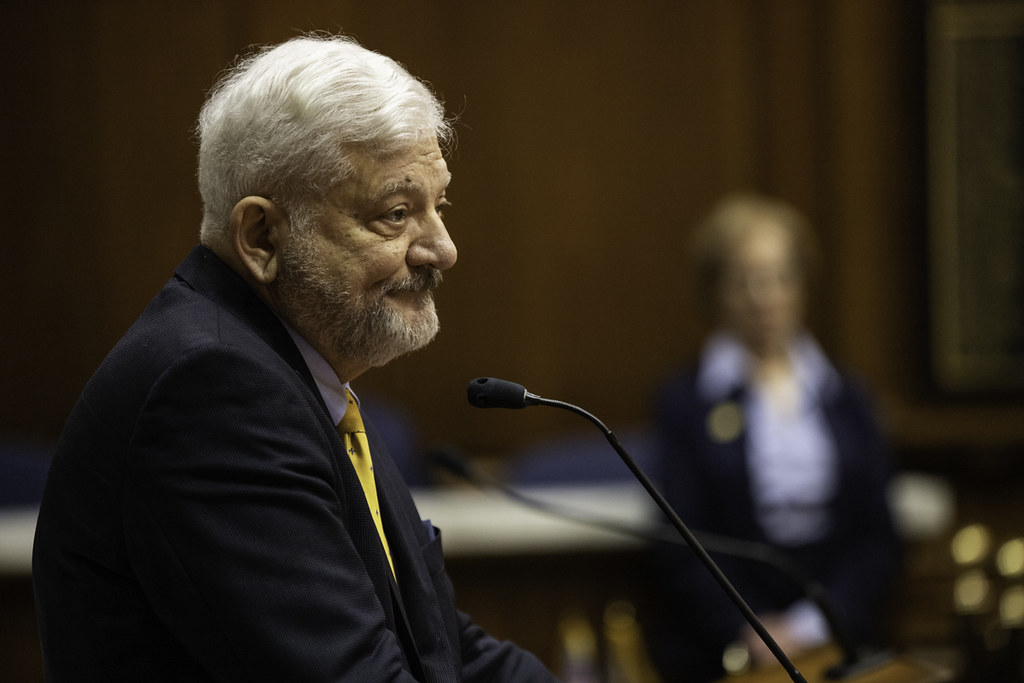
Rep. Soliday, who chairs the House utilities committee and carried the bill, also argues that HB 1420 would give Hoosiers more protections against high energy costs.
One aspect of his legislation would require investor-owned utilities to provide information about the new transmission projects to an existing state regulatory body.
That body, called the Indiana Utility Regulatory Commission (IURC), is responsible for approving actions by the utility companies that affect what Hoosiers pay on their utility bills each month.
Soliday’s argument is fairly simple: If an investor-owned utility tries to pass along unnecessary costs to Hoosiers, then the commission would be able to serve as a check.
“Because they have enforcement authority,” Soliday told State Affairs. “The IURC can say, ‘You are running way over what you said … You want to spend that kind of money? That’s fine, but your profits are limited.’ ”
The IURC could, Soliday said, reduce the approved retail rates that Indiana residents pay to the companies on monthly utility bills.
Without his legislation, Soliday said another company could lowball a bid for a transmission project, face overruns and then inflate the costs that eventually work their way down to monthly utility bills — and then the IURC would have no recourse on behalf of consumers.
It’s worth noting, however, that the IURC does not have jurisdiction over the transmission rates. Federal law places that responsibility on a federal regulator.
What’s next
HB 1420 moved through both chambers, driven largely by the Republican supermajorities. Their support was not unanimous, however, with 32 Republicans opposing the bill across both chambers.
Several Democrats also supported the bill.
One who didn’t, though, was Sen. Andrea Hunley, D-Indianapolis.
In explaining her vote during a Senate committee meeting, Hunley referenced a frustration about finding herself thrust into a national turf war between investor-owned utilities and transmission companies.
“I’ve done more research on this bill — and it’s only three pages — than any other bill this entire session,” Hunley said. “And what I’ve found is this is not about being pro- or anti-labor, it’s not about being pro- or anti-competition, it’s not about being pro- or anti-local ownership.”
She went on: “At the end of the day, it’s about the rich and the richer.”
The bill will next head to Gov. Eric Holcomb’s desk.
Contact Ryan Martin on Twitter, Facebook, Instagram, LinkedIn or at [email protected].
Twitter @StateAffairsIN
Facebook @stateaffairsin
Instagram @stateaffairsin
LinkedIn @stateaffairs
Header image: House Bill 1420 would give first dibs to investor-owned utility companies on regional transmission projects. (Credit: Dave Sangster)
4 things to know about Braun’s property tax proposal
Sen. Mike Braun, the Republican candidate for Indiana’s governor, released a plan for overhauling property taxes Friday morning that would impact millions of Hoosiers, Indiana schools and local governments. “Nothing is more important than ensuring Hoosiers can afford to live in their homes without being overburdened by rising property taxes driven by rapid inflation in …
Bureau of Motor Vehicles looks to add new rules to Indiana’s driving test
The Bureau of Motor Vehicles wants to amend Indiana’s driving skills test, putting “existing practice” into administrative rule. Indiana already fails drivers who speed, disobey traffic signals and don’t wear a seatbelt, among other violations. Yet the BMV is looking to make the state’s driving skills test more stringent. A proposed rule amendment looks to …
In Indianapolis, Harris says she’s fighting for America’s future
Vice President Kamala Harris, the presumptive Democratic presidential nominee, told a gathering of women of color in Indianapolis on Wednesday that she is fighting for America’s future. She contrasted her vision with another — one she said is “focused on the past.” “Across our nation, we are witnessing a full-on assault on hard-fought, hard-won freedoms …
Indiana Black Legislative Caucus endorses Harris, pledges future support
The Indiana Black Legislative Caucus unanimously voted Wednesday to endorse Vice President Kamala Harris’ presidential run and will look at ways to assist her candidacy, the caucus chair, state Rep. Earl Harris Jr., D-East Chicago, told State Affairs. The caucus is made up of 14 members of the Indiana General Assembly, all of whom are …



